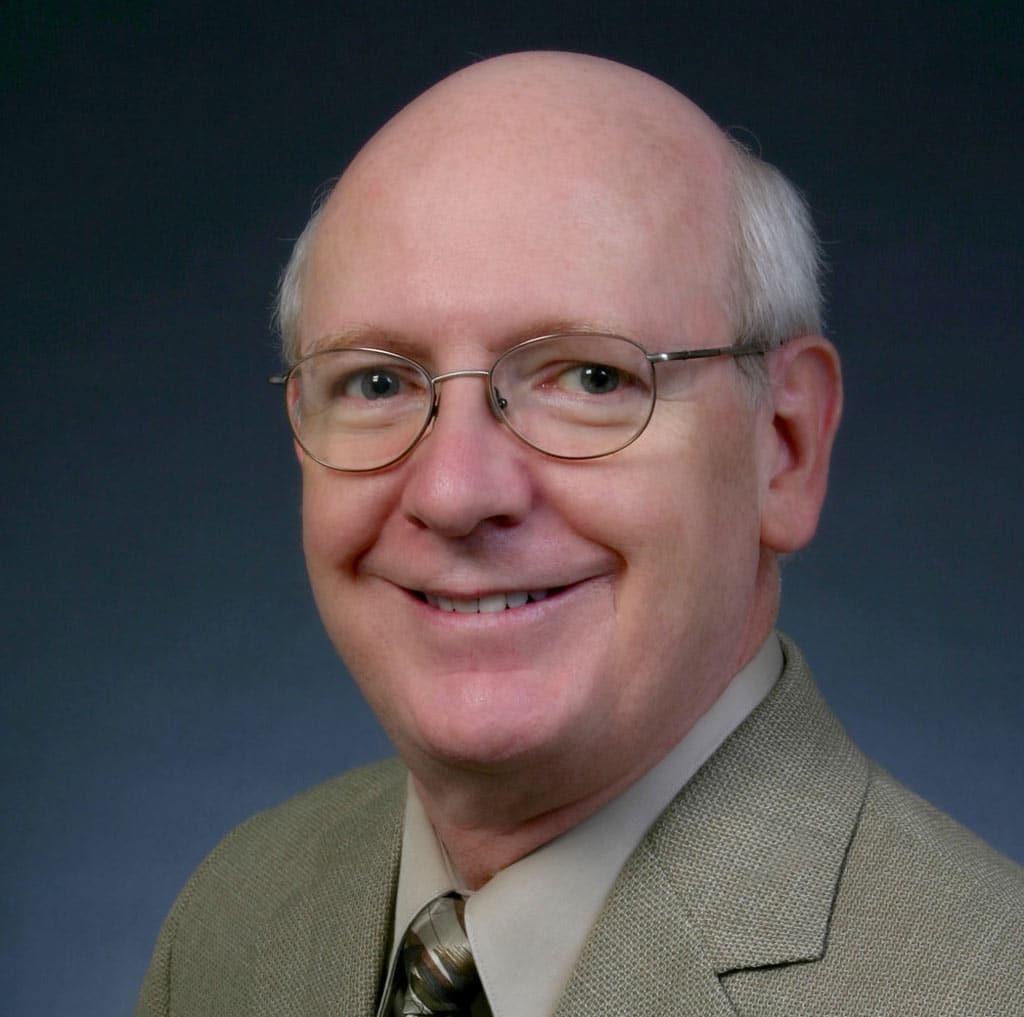Skilled maxillofacial and oral surgeon professionals play a crucial role in diagnosing and treating diseases, injuries, and defects involving the mouth, jaw, face, and neck in Texas and the USA.
Are you considering jaw surgery and you are seeking a top-rated oral and maxillofacial surgeon? Look no further! In this blog post, we will delve into the exciting world of oral and maxillofacial surgeons and explore the Surgeon qualifications necessary to practice this form of medicine and surgery in Texas and the USA.
If you’re seeking a top-rated maxillofacial and oral surgeon in Texas or the USA, learn the type of surgical expertise and patient care, you deserve!
Importance of Surgeon Qualifications in Oral and Maxillofacial Surgery
Overview of the Role of Oral and Maxillofacial Surgeons
Surgeon qualifications are of utmost importance in the field of oral and maxillofacial surgery. These qualifications not only ensure that surgeons possess the necessary knowledge and skills to provide high-quality care but also play a crucial role in patient safety. Oral and maxillofacial surgeons are highly trained professionals who specialize in diagnosing and treating conditions affecting the mouth, jaw, face, and neck.
Their role extends beyond traditional dentistry as they perform complex surgical procedures such as tooth extractions, dental implants, corrective jaw surgery, trauma surgery, and more. They are experts at managing both simple cases and complicated conditions requiring specialized treatment.
Purpose of Outlining Surgeon Qualifications Necessary for Practice in Texas and the USA
Outlining the surgeon qualifications necessary for practice in Texas and the USA serves multiple purposes. It helps aspiring surgeons understand the educational requirements needed to pursue a career in this field. Completion of an undergraduate degree followed by graduation from an accredited dental school is essential.
These surgeon qualifications shed light on licensure requirements set forth by governing bodies like the Texas State Board of Dental Examiners. Obtaining proper licensure ensures that oral and maxillofacial surgeons meet specific standards set by regulatory authorities.
Outlining these surgeon qualifications emphasizes the significance of certification by reputable organizations such as the American Board of Oral and Maxillofacial Surgery (ABOMS). Certification adds another layer of credibility to a surgeon’s skillset while offering reassurance to patients seeking their expertise.
Understanding the importance of qualifications for oral and maxillofacial surgeons is vital for both professionals entering this field and individuals seeking their services. By meeting these requirements – including education, licensure,and certification – practitioners can deliver exceptional patient care while upholding industry standards for excellence.

Educational Requirements
- Completion of undergraduate degree (e.g., Bachelor of Science)
- Graduation from an accredited dental school (Doctor of Dental Surgery or Doctor of Dental Medicine)
- Completion of an accredited oral and maxillofacial surgery residency program (minimum of four years)
To become an oral and maxillofacial surgeon in Texas and the USA, certain educational requirements must be met. Aspiring surgeons need to complete an undergraduate degree program, such as a Bachelor of Science. This provides a strong foundation in the sciences and prepares them for their dental education.
After completing their undergraduate studies, individuals must then graduate from an accredited dental school with either a Doctor of Dental Surgery (DDS) or a Doctor of Dental Medicine (DMD) degree. This comprehensive dental education equips future surgeons with the knowledge and skills necessary for diagnosing and treating oral health conditions.
Once dental school is completed, aspiring oral and maxillofacial surgeons are required to undertake at least four years of specialized training through an accredited residency program. During this time, they gain extensive hands-on experience in surgical procedures specific to the face, jaw, mouth, and skull.
In addition to fulfilling educational requirements, obtaining licensure by the Texas State Board of Dental Examiners is essential for practicing as a surgeon in Texas. Furthermore,certification by the American Board of Oral and Maxillofacial Surgery (ABOMS) demonstrates advanced competency in the field.
By meeting these educational requirements and obtaining licensure and certification, maxillofacial surgeons develop expertise that ensures quality care for patients requiring complex surgical interventions on their face, jaw or skull structures.
Through rigorous training programs & regulatory processes, you can trust that these professionals have acquired the necessary surgeon qualifications to deliver exceptional patient outcomes without compromise
Licensure and Certification
Licensure by the Texas State Board of Dental Examiners
Licensure and certification are essential components of becoming a qualified oral and maxillofacial surgeon in Texas and the USA. Let’s dive into what these requirements entail.
Obtaining licensure by the Texas State Board of Dental Examiners is crucial to practice as an oral surgeon in Texas. This ensures that surgeons meet the state’s standards for competency and ethical conduct in providing dental care to patients. It involves passing written and practical examinations and demonstrating proficiency in various aspects of oral surgery.
Certification by the American Board of Oral and Maxillofacial Surgery (ABOMS)
Certification by the American Board of Oral and Maxillofacial Surgery (ABOMS) further validates a surgeon’s expertise in this specialized field. ABOMS certification requires completing an accredited residency program, submitting case reports for evaluation, and successfully passing rigorous written and oral examinations.
Continuing education requirements for maintaining licensure and certification
Additionally, continuing education plays a vital role in maintaining licensure and certification. Surgeons must stay updated on advancements in their field through regular participation in educational courses, conferences, workshops, or seminars. These activities ensure that surgeons remain knowledgeable about new techniques, technologies, research findings, and best practices within oral maxillofacial surgery.
By adhering to these licensure and certification requirements, Texas residents can trust that their chosen oral surgeon has met stringent criteria for professional competence and is committed to upholding high standards of patient care throughout their career journey!
Skillset and Training
- Proficiency in diagnosing and treating diseases, injuries, and defects involving the oral and maxillofacial region
- Expertise in performing surgical procedures including tooth extractions, dental implants, corrective jaw surgery, and trauma surgery
- Training in administering anesthesia and managing patients in surgical settings
When it comes to the surgeon qualifications necessary for an oral and maxillofacial surgeon, developing a strong skillset and receiving comprehensive training is of utmost importance. These surgeons possess a unique proficiency in diagnosing and treating various diseases, injuries, and defects that affect the oral and maxillofacial region.
Their expertise extends beyond general dentistry, as they are trained to perform surgical procedures like tooth extractions, dental implants, corrective jaw surgery, and trauma surgery. Their deep understanding of these complex procedures ensures that patients receive top-notch care for their specific needs.
In addition to surgical skills, oral and maxillofacial surgeons also undergo extensive training in administering anesthesia. This enables them to safely manage patients in surgical settings while ensuring their comfort throughout the procedure.
The combination of these skills not only allows oral and maxillofacial surgeons to provide exceptional patient care but also contributes to their overall success in this specialized field. By staying up-to-date with advancements in surgical techniques and technology, these professionals continue to enhance their knowledge through ongoing professional development activities.
In conclusion, maxillofacial surgeons undertake rigorous training programs that equip them with essential skills needed for diagnosing conditions related to the oral cavity. Additionally, surgeons learn how to conduct various complex surgeries aimed at correcting jaw abnormalities or replacing lost teeth among others.
Furthermore, the specialists are well-trained in handling anesthesia administration during surgeries thus assuring safety during operations.
Skillset acquisition goes hand-in-hand with keeping abreast with emerging trends hence commitment to lifelong learning is important when venturing into this medical speciality
Experience
Completion of a Designated Number of Surgical Cases During Residency Training
Experience plays a crucial role in shaping the skills and expertise of an oral and maxillofacial surgeon. A successful surgeon is required to have completed a designated number of surgical cases during their residency training. This hands-on experience allows them to develop proficiency in various procedures, ensuring they are well-prepared for real-world patient care.
Additional Years of Practice Experience Post-Residency
In addition to residency training, post-residency practice experience further enhances a surgeon’s abilities. These additional years of practice provide valuable opportunities for surgeons to refine their techniques, expand their knowledge base, and gain exposure to a wide range of complex cases.
Demonstrated Competency in Complex Surgical Procedures and Patient Care
Demonstrated competency in performing complex surgical procedures and providing exceptional patient care is another essential aspect of an experienced oral and maxillofacial surgeon. Through their practical experiences, these surgeons acquire the necessary skills and confidence needed to handle intricate cases such as orthognathic surgery or reconstructive surgery.
By continually challenging themselves with diverse cases and staying up-to-date with advancements in the field, experienced surgeons can ensure that they deliver the highest quality care possible to their patients.
Remember that experience alone does not guarantee excellence; it must be coupled with ongoing education, professional development, and dedication to maintaining clinical competence throughout one’s career. The pursuit of mastery is a lifelong commitment for oral and maxillofacial surgeons who aim to provide top-notch care while prioritizing patient safety above all else.
Dr. Larry Wolford is the most experienced maxillofacial surgeon in the world. He has completed more jaw reconstruction surgeries and more jaw revision surgeries than any living maxillofacial orthognathic surgeon,
Professional Affiliations
Membership in professional organizations such as the American Association of Oral and Maxillofacial Surgeons (AAOMS)
Professional affiliations play a crucial role in the development and growth of oral and maxillofacial surgeons. Membership in professional organizations, such as the American Association of Oral and Maxillofacial Surgeons (AAOMS), provides valuable opportunities for networking, knowledge sharing, and staying updated with the latest advancements in the field.
Joining AAOMS allows oral and maxillofacial surgeons to connect with like-minded professionals who share their passion for excellence in patient care. Through this affiliation, they gain access to a vast network of experienced colleagues from whom they can learn and seek guidance when faced with challenging cases or situations.
Participation in continuing education events and conferences
Participation in continuing education events and conferences is another essential aspect of being part of professional affiliations. These events offer educational sessions led by renowned experts, covering various topics relevant to oral and maxillofacial surgery. Attending these conferences enables surgeons to stay up-to-date with emerging techniques, technologies, research findings, and evidence-based practices that can enhance their skills.
Engagement in research and scholarly activities related to the field
Engaging in research activities is also encouraged within professional organizations. Conducting studies related to oral surgery contributes to advancing knowledge within the field while improving patient outcomes. By actively participating in research projects and scholarly activities, surgeons have an opportunity to contribute new insights and innovations that shape the future of oral healthcare.
Being affiliated with professional organizations like AAOMS offers numerous benefits for aspiring or practicing oral and maxillofacial surgeons. It fosters collaboration among peers through networking opportunities while providing access to continuing education events that promote ongoing learning. Furthermore, engagement in research initiatives helps drive innovation forward within the specialty by contributing original ideas grounded in scientific evidence.
Interpersonal and Communication Skills
Ability to effectively communicate with patients and their families
Effective communication is a vital skill for any oral and maxillofacial surgeon. It involves not only conveying information clearly but also listening attentively to patients and their families. A skilled surgeon understands the importance of active listening, allowing patients to express their concerns, fears, and expectations.
Empathy and bedside manner in addressing patient concerns and fears
Empathy plays a crucial role in building trust with patients. Understanding their emotions and providing support can greatly alleviate anxiety during what can be a stressful time. Bedside manner is essential in creating a comfortable environment where patients feel cared for and understood.
Collaboration with multidisciplinary healthcare teams for comprehensive patient care
Collaboration with multidisciplinary healthcare teams is another key aspect of an oral and maxillofacial surgeon’s interpersonal skills. Working closely with other medical professionals ensures comprehensive patient care that addresses all aspects of their health needs.
Being able to effectively communicate with fellow healthcare providers fosters teamwork, leading to better outcomes for patients. This collaboration allows surgeons to coordinate treatment plans, share knowledge, and provide seamless care across different disciplines.
Strong interpersonal and communication skills enable oral and maxillofacial surgeons to establish meaningful connections with their patients while also fostering collaboration within the healthcare team. These skills are fundamental in delivering high-quality care that meets both the physical and emotional needs of each individual patient.

Ethical and Legal Responsibilities
- Adherence to ethical standards set forth by professional organizations
- Compliance with state and federal laws governing healthcare practices
- Commitment to patient confidentiality and informed consent
Adherence to Ethical Standards Set Forth by Professional Organizations
Ethical and legal responsibilities are paramount for oral and maxillofacial surgeons. They must adhere to the ethical standards established by professional organizations, ensuring that they provide the highest level of care to their patients.
Compliance With State and Federal Laws Governing Healthcare Practices
In addition, these professionals must comply with state and federal laws governing healthcare practices. This includes staying up-to-date on regulations related to patient safety, privacy, and informed consent. By following these laws, oral and maxillofacial surgeons can maintain a safe and secure environment for their patients.
Compliance With State and Federal Laws Governing Healthcare Practices
Patient confidentiality is another crucial aspect of ethical practice in this field. Surgeons must prioritize protecting sensitive medical information about their patients and maintaining trust between themselves and those under their care.
Commitment to Patient Confidentiality and Informed Consent
Furthermore, obtaining informed consent from patients is an essential responsibility. Oral and maxillofacial surgeons should ensure that individuals fully understand the risks, benefits, alternatives, and potential outcomes of any proposed treatment or surgery before proceeding.
By upholding ethical standards set forth by professional organizations while also complying with legal requirements at both state and federal levels, oral and maxillofacial surgeons demonstrate their commitment to providing quality care in a responsible manner.
Adaptability and Professional Growth
Willingness To Adapt to Advancements in Surgical Techniques and Technology
As an oral and maxillofacial surgeon, adaptability and professional growth are key to providing the highest quality of care for patients. A willingness to embrace advancements in surgical techniques and technology is essential for staying at the forefront of the field. With new innovations constantly emerging, surgeons must stay up-to-date.
Participation in Ongoing Professional Development Activities
Participation in ongoing professional development activities is another important aspect of adaptability. This can include attending conferences, workshops, and seminars that focus on the latest research, procedures, and technologies in oral and maxillofacial surgery. By actively seeking out these opportunities for learning, surgeons can enhance their skills and expand their knowledge base.
Commitment to Lifelong Learning and Improvement in Clinical Skills
Moreover, a commitment to lifelong learning ensures continued improvement in clinical skills. This means consistently seeking ways to refine surgical techniques through further education or specialized training programs. By dedicating themselves to continuous growth and improvement, oral and maxillofacial surgeons can provide patients with cutting-edge treatments backed by the latest evidence-based practices.
Adaptability and professional growth are indispensable qualities for any oral and maxillofacial surgeon aiming to provide exceptional patient care. By remaining open-minded about advancements in surgical techniques and technology while actively pursuing ongoing education opportunities, surgeons can continually improve their clinical skills for better patient outcomes.
Recap of Jaw Surgeon Qualifications Necessary in Texas and the USA
The Overall Impact on Ensuring Quality Patient Care and Safety
In this blog post, we have explored the surgeon qualifications necessary for becoming an oral and maxillofacial surgeon in Texas and the USA. We have discussed the educational requirements, licensure and certification process, skillset and training, experience, professional affiliations, interpersonal skills, ethical responsibilities, adaptability to advancements in the field, and commitment to professional growth.
Importance of Meeting Educational, Licensure, Certification, and Skill Requirements for Practice
Meeting these qualifications is crucial for individuals aspiring to practice as oral and maxillofacial surgeons. By completing an undergraduate degree followed by graduation from an accredited dental school, aspiring surgeons lay a strong foundation for their future career. The completion of an accredited oral and maxillofacial surgery residency program further enhances their knowledge and expertise.
Obtaining licensure from the Texas State Board of Dental Examiners ensures that practitioners meet all state-specific requirements to provide safe dental care. Certification by organizations like the American Board of Oral Maxillofacial Surgery demonstrates a surgeon’s dedication to upholding high standards within their specialty.
A comprehensive skillset including diagnosing diseases or defects related to facial structures is essential for successful patient outcomes. Proficiency in performing surgical procedures such as tooth extractions or corrective jaw surgeries allows surgeons to address various conditions effectively.
Experience gained during residency training coupled with additional years of practice helps develop competence in complex surgical procedures while refining patient care skills. Being actively involved in professional organizations like AAOMS provides opportunities for networking with peers while staying updated on industry trends through continuing education events.
Interpersonal skills play a critical role in establishing rapport with patients; effective communication alleviates anxiety surrounding treatment plans. Adherence to ethical standards along with compliance with legal regulations ensures quality healthcare delivery while respecting patients’ rights.
Being adaptable towards advancements enables surgeons to stay at the forefront of innovative techniques within their field. Commitment towards lifelong learning guarantees continuous improvement leading to enhanced clinical proficiency throughout their careers.
The qualifications necessary for oral and maxillofacial surgeons should not be overlooked and definitely strongly considered when choosing an oral and maxillofacial surgeon for your jaw surgery or jaw re-surgery.






